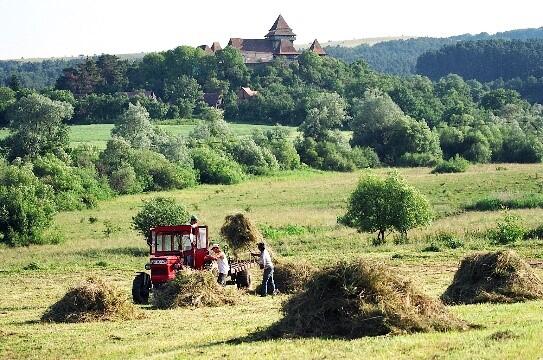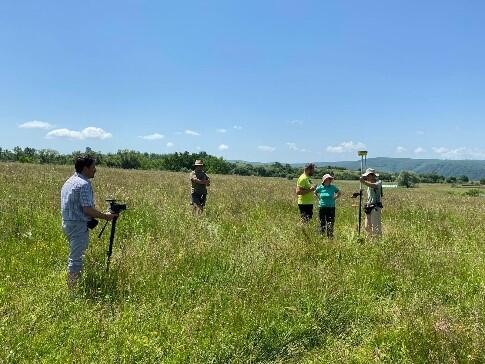Development of a Cooperative Management Concept for Conservation of Agrobiodiversity in Angofa and Viscri Valleys, Romania – „TransilvaCooperation“
International project funding
Subject and goals of the project
The aim of the planned project is to conserve biodiversity in traditionally managed landscapes in Transylvania and to ensure adequate income for farmers. The project will test and demonstrate innovative techniques, products and cooperative management approaches to protect grassland biodiversity, especially hay meadows, in two valleys in south-eastern Transylvania. The aim is to
- supplement existing data on habitats at the landscape scale and preparing them for GIS,
- develop management plans in close cooperation with growers, so that they are supported by the local community,
- implement cooperative conservation management with over 50 farmers in two valleys on 1 000 ha based on the management plans,
- to set up a demonstration farm to show farmers and policy makers how smallholder farms can still be sustainable,
- implement concrete measures to restore habitats and install infrastructure to facilitate better management,
- to establish an academy for agroecology in the former school building and a nature trail with interpretation panels and a smartphone app.
If successful, the project will lead to an improved status of habitats and species protected under the EU Habitats Directive, especially for wildflower-rich hay meadows and related habitats.
A broad communication strategy will be used to communicate the innovative approaches and concepts to the general public and decision-makers at local, regional and national level.
Innovation and exemplary nature of the project
The project hits the core of biodiversity loss in biodiversity hotspots in the Carpathians, namely the foreseeable collapse of the extensive use of mountain meadows. This presupposes the maintenance of small-scale agriculture, which will only be possible if it can also be operated economically. Of course, the Common Agricultural Policy of the European Union plays an important role here, which would have to provide a corresponding support framework and also be used optimally by the farms. But there is also a lack of cooperative structures that bring farms together and allow, for example, the joint use of equipment parks and the bundling of complex application procedures for EU subsidies or for contractual nature conservation. There is also a lack of business models, such as efficient marketing of pasture milk and livestock. In these contexts, the project partners can refer to many years of experience and success in the region and have now presented a very comprehensible concept for problem solutions. An important component is the communication of the project contents and results to the different target groups and relevant actors. The project is integrated into an EU Life project that pursues coherent goals.
Special aspects of the project
The project was developed and selected as a result of the DBU project "Analysis of priority action areas for biodiversity conservation in Romania" (DBU-AZ 33901). Both the project region and the project partners and their networking in the region were convincing and prevailed in comparison with other project ideas.
Funding subject: Nature conservation and sustainable use of nature in cultural landscapes and protected areas
Cooperation partners:
- Naccon GmbH, Tuebingen
- Fundatia Adept, Romania
Locations: Baden-Wuerttemberg and Romania
Funding period: February 2021 to February 2024
Project costs: Total volume: 254 000 Euro, DBU funding: 120 000 Euro
DBU-AZ: 37026
Note: Translation of the German version with DeepL
Last updated: 20.05.2022



